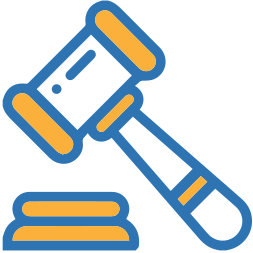Technical Optimizations For Search Engine Optimization
Although most businesses generally have some sort of grasp on what SEO (search engine optimization) is, many don’t realize that there’s a lot more to SEO than just the use of keywords. There’s on-page SEO, and there’s off-page SEO. On-page SEO refers to all SEO efforts done directly on your website. Then there are two aspects to on-page SEO, creative SEO, and technical SEO.
Creative SEO consists of the creation of high-quality content and the proper optimization of content throughout your site using relevant keywords. Creative SEO includes everything from the body content of your webpages to the page titles, headers, image alt tags, meta titles, meta descriptions, URLs, anchor text, and more. Equally as important as creative SEO is technical SEO. Technical SEO is a process to optimize the website to make it as easy as possible for Google to crawl and index the pages. Technical SEO also addresses the technical issues that can hinder the performance of your website, which, in turn, can affect your website experience. Technical issues that can hurt the website experience can negatively affect your page rankings.
Unfortunately, optimizing your website for technical SEO without the technical know-how is challenging. It can be quite time consuming to perform a technical SEO audit to identify technical issues, address those issues, and then continually monitor the technical SEO of your site into the foreseeable future. It’s for these reasons that most businesses will outsource their technical SEO needs.
The Categories Of Technical SEO Work
Building and maintaining a website to the technical specifications that Google rewards highest requires a lot of technical know-how, and a lot of committed resources. Technical SEO isn’t just about making sure your web pages load quickly; there’s a lot more to it than that. Technical SEO work groups into three main categories:
Issues And Errors
Your website needs to be regularly monitored for technical issues and errors to ensure they do not affect page rankings. Slow page speed is an example of a technical issue, while broken links are an example of technical errors. If a visitor clicks a link on your website and the page doesn’t load, they’re going to leave, which will damage your engagement metrics and, ultimately, your SEO rankings. Other common technical issues that can affect your SEO rankings include missing or incorrect robots.txt files, having multiple URL versions of your homepage, using incorrect rel=canonical tags, and more.
Inefficiency Correction
To earn high page rankings, you first must make it easy for Google to crawl through your website. The most effective way to do this is by creating and maintaining an XML sitemap. A sitemap lists the URLs on your website and provides a roadmap that Google’s bots can follow to more efficiently crawl your site and understand each page. We can also fix any inefficiencies within your site architecture that could be limiting Google’s ability to crawl your website effectively.
Index Management
Index management is the process of ensuring that Google correctly indexes every page on your website. If the number of pages on your site doesn’t match up to the number of pages Google has indexed on your website, it means that their bots didn’t crawl certain pages, and those pages will not appear on Google’s SERPs (search engine results pages). Since a good website routinely adds new pages and content, index management is essential to technical SEO.
We Investigate Issues Of Multiple Impacts
When evaluating the technical aspects of your website, we will look for and identify issues of multiple impacts. Once we find an issue, we will locate the source of the problem and implement a solution that will improve your technical SEO. We will investigate these different ways that technical issues can impact your website:
Site-Wide Impact
Silo Specific Impact
Individual Page Level
Some technical issues may be limited to individual pages and is where issues like slow loading speeds or broken links commonly appear. The problem is that with a website that has hundreds, if not thousands of pages, it can be a challenge to pinpoint single pages that have technical issues. Using a variety of metrics, we can identify pages that have potential technical issues. For example, a page with an abnormally high bounce rate may have loading problems. Or if a page has a significantly high click-through rate but an incredibly low conversion rate, it could be the result of a technical issue on the landing page.
The Different Skill Sets Required Within A Technical SEO Team
All of the technical work necessary to maintain your website and to ensure proper technical SEO requires many different skill sets. It is one of the main reasons why most businesses will outsource their technical SEO needs. Skill sets that are necessary for a technical SEO team to be effective include:
CMS Management And Webmaster
Coding And Development
Auditing And Analytics
Crawling And Error Checking
Your technical SEO team will need someone dedicated to crawling through your website in search of errors. They often work in conjunction with the personnel responsible for auditing and analytics to discover potential technical issues.
Sysadmin And Server Management
The sysadmin (system administrator) is responsible for the maintenance, configuration, and operation of computer systems and servers. In regards to your website, a sysadmin ensures that your website is fully functional and properly backed up.
Data Analysis And Reporting
Data analytics and reporting are critical to technical SEO because the data you collect and analyze is what allows you to monitor the performance of your technical SEO efforts and helps to indicate whether your efforts to correct technical issues have been successful. Data analytics also makes it possible to discover new opportunities to improve your technical SEO.
XML Sitemap Management
One essential piece of managing the crawling and indexing of a website is the management of an XML sitemap, which allows crawlers a seed to crawl all important pages.
Our Continuous Improvement System
Our technical SEO team employs an interactive, ongoing process that allows us to effectively and efficiently evaluate the technical aspects throughout your entire website. The goal is to identify technical issues, successfully resolve them, and continually optimize your site to the highest level possible. There are the individual stages of our technical SEO process:
Analyze
We will evaluate your website from the top down to analyze the strength of your existing technical SEO. We will do this by taking note of your page rankings and checking to see whether Google has successfully indexed the pages on your website.
Audit
Once we’ve evaluated your website’s technical SEO, we will perform a technical SEO audit. Not only will we search for existing issues that could be hurting your technical SEO, but we will also look for opportunities to improve it. For example, if you haven’t implemented a sitemap, then we will develop one for your website to help make it easier for Google to crawl.
Implement
After we have performed a site-wide audit, we will implement any technical corrections or make improvements based on the opportunities that we’ve found.
Analyze Again
To ensure that the technical corrections and improvements that we’ve made to your website work, we will analyze your site again. Any corrections or improvements that do not yield the impact we anticipate will then be adjusted accordingly.
Re-Audit
The technical SEO process does not just end after the successful implementation of any technical corrections or improvements that we have made. SEO is a long-term strategy, and that includes technical SEO. Technical issues can continually arise over time, primarily as new additions and changes to your site occur over time. A website should receive routine audits to ensure that any new issues or opportunities for improvement are discovered and addressed.
Technical SEO Is The Structure on Which All Other SEO Is Built
If your website does not have a solid technical foundation, you will limit the overall impact that additional efforts may have as Google will view your domain as flawed and not give you the search results rankings you desire. When a domain is technically sound, and Google does not find any demerits to hold against you, then you can begin to reap the rewards of all other digital marketing efforts.















